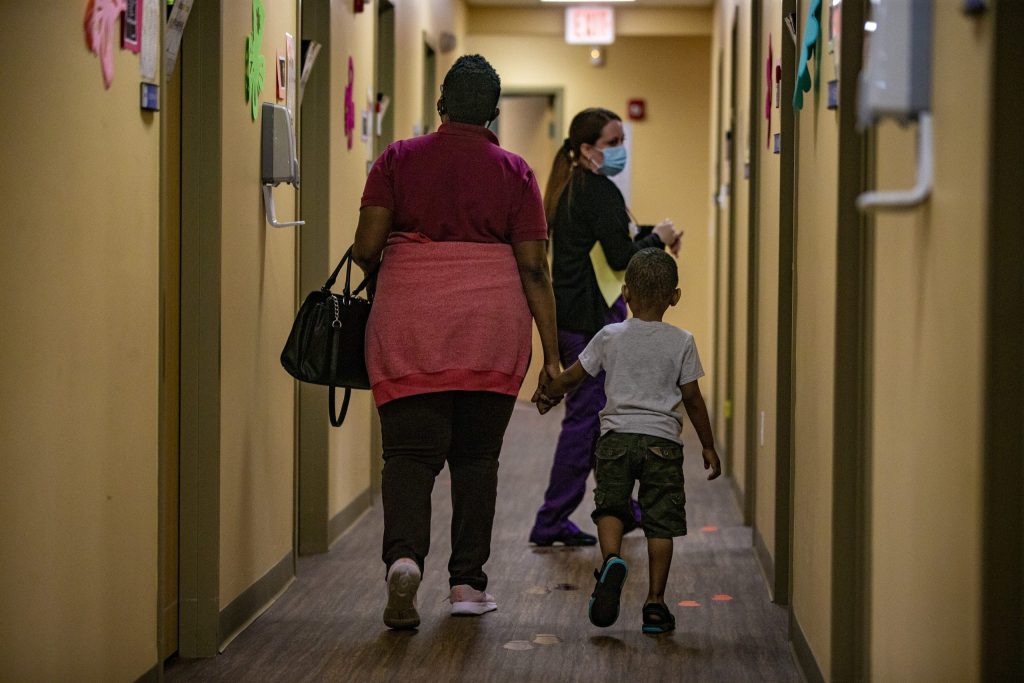How COVID Isolation, Loss And Racism Deepened Crises For Children Of Color

A health worker leads a mother and her child to an examination room at the Brockton Neighborhood Health Center. (Jesse Costa/WBUR)
The pandemic is waning, but the mental health crisis for children isn’t. And for many children of color, the full impact of the last 15 months — against a backdrop of longstanding systemic racism and inequities — may just be coming into focus.
Mahailya Effee, a 15-year-old who lives in Roxbury, Mass., says from the early days of the pandemic, she struggled to stay engaged with full-time remote school. She started to not care about her grades.
“I would wake up in the morning; I’d have my Chromebook right there in front of me,” Mahailya said. “I would do the work. I just wouldn’t finish it and turn it in.”
Mahailya already had anxiety, and she hated being stuck in her family’s apartment. Then, the pandemic really hit home in May of last year. Mahailya’s grandfather died from COVID-19. She vividly remembers the moment her mother got the call.
“And I was like, ‘Nah, this can’t be true,’ ” Mahailya recalled. “So then I went in the bathroom, and … I wasn’t yelling, but I was just like, ‘Why?’ ”
Her grandfather had been homeless in Boston. She was devastated the family couldn’t hold a funeral for him because of the health risks.
“It was just like, he’s gone. I can’t say a final goodbye,” she said. “And to me, a funeral is when a person might be gone, but their body is there in the casket, and you can see them. It was really stressful, and I kind of started overeating.”
She started to fail classes. At around the same time, the city and nation erupted in protests over the police killings of George Floyd and other Black people.
Click here for the full story from WBUR’s “Pandemic Generation” series.
